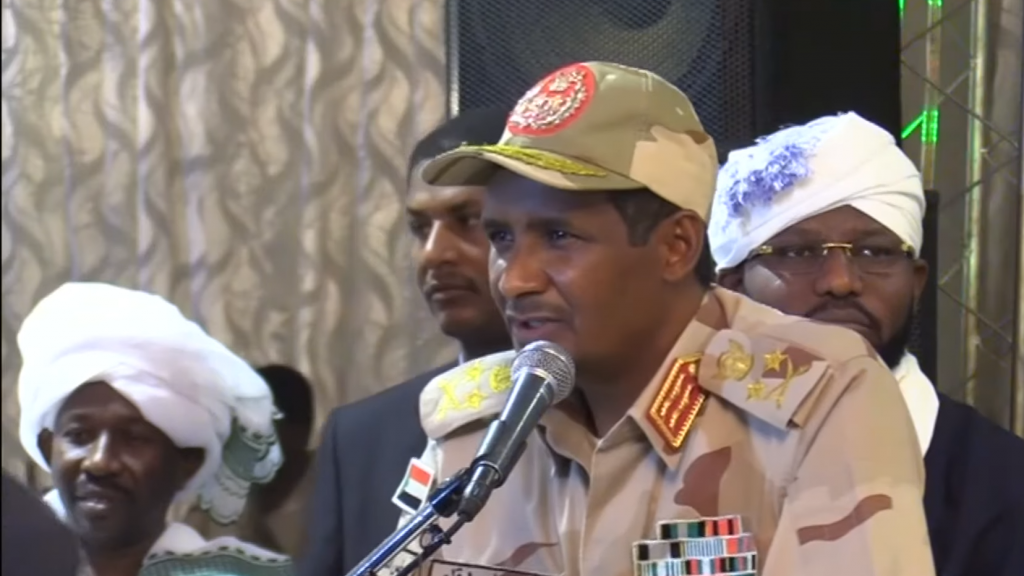Warlord-linked Sudanese firm hands over mines

A company linked to Sudan’s most powerful militia leader is surrendering a network of mines that at one stage produced a third of the nation’s gold, as his group battles accusations of corruption and brutality.
Mining ministry officials are assessing the value of the area in the Jebel Amer region of North Darfur that’s been held since 2016 by Al Gunade, a construction and trading firm owned by members of Mohamed Hamdan Dagalo’s family. A former enforcer for long-time ruler Omar al-Bashir, Dagalo joined the coup against him last year and now has a senior role in Sudan’s transitional government.
Al Gunade is making the handover due to “political pressure on the company as well as a campaign claiming it was involved in gold smuggling,” Walid Ahmed, an assistant to the general manager, said in an interview, without giving more details. He said the process will be completed in a month.
Sudan’s government, which is set to rule until elections in 2022, has recently sought to make the gold industry more transparent
The precious metal’s discovery in remote Jebel Amer in 2012 sparked a gold rush that drew in self-employed diggers from as far afield as Chad, the Central African Republic and Nigeria. The holding will be given to a state-owned company, a potential move toward formalizing a sector that cash-strapped Sudan has touted as an alternative to oil. The country lost three-quarters of its crude reserves when South Sudan seceded in 2011.
Sudan estimated gold output at 93 tonnes in 2018, a figure that would make it Africa’s third-largest producer, although much is thought to be smuggled or illicitly traded. A government official told Sudanese TV in 2012 that Jebel Amer provided a third of national output.
Sudan’s government, which is set to rule until elections in 2022, has recently sought to make the gold industry more transparent. In January, it began allowing private traders to export the metal, removing the central bank’s monopoly. This week it announced plans for a local gold exchange.
Dagalo rose to prominence after leading the feared Janjaweed militia during the conflict in the western region of Darfur. The group rebranded in 2013 as the Rapid Support Forces and later took control of Jebel Amer, which had been plagued by intercommunal fighting over its resources.
Since backing the overthrow of Bashir, Dagalo has become a member of the government’s top council, recently leading part of the coronavirus response. Sudan’s pro-democracy movement, however, regards him with deep suspicion. The RSF is accused of a crackdown in June that killed more than 100 protesters.
Dagalo has previously acknowledged members of his family have interests in gold. Last year he said the RSF had deposited over $1 billion with the central bank to stabilize the economy, describing part of his forces’ income as derived from the resource. An RSF spokesman, Gamal Gumaa, told Bloomberg last year that Dagalo’s family own Al Gunade.
London-based watchdog Global Witness concluded in December that a “key element” of the RSF’s income stems from its apparent association with Al Gunade, citing leaked documents. “Together, they appear to have effectively captured a large part of the gold market in Sudan,” it said.
Government officials have made several visit to Jebel Amer and are studying Al Gunade’s facilities and land ownership, according to a person familiar with the matter who asked not to be identified as they’re not authorized to speak to the media. Their mandate doesn’t include investigating graft allegations or the company’s financial records, the person said.
(By Mohammed Alamin)
More News
{{ commodity.name }}
{{ post.title }}
{{ post.date }}




Comments